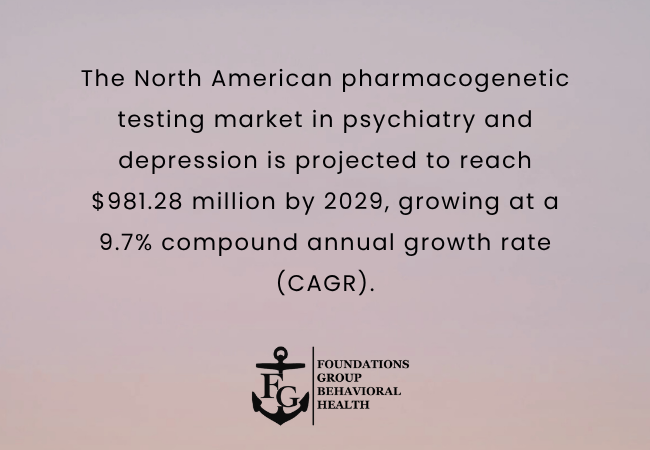Psychiatric medication plays a vital role in helping individuals manage a wide range of mental health conditions—from depression and anxiety to bipolar disorder and schizophrenia. But medication is not a one-size-fits-all solution. Each person responds differently based on their biology, history, and environment. As such, psychiatric medication management is both an art and a science—requiring ongoing evaluation, communication, and careful consideration to balance effectiveness with potential side effects.
At Foundations Group Behavioral Health, we believe that medication should enhance a person’s quality of life—not hinder it. Our approach emphasizes individualized care, scientific insight, and compassionate support to help individuals find the right therapeutic balance.
Understanding Psychiatric Medication Management
Psychiatric medication management refers to the process of prescribing, monitoring, and adjusting medications used to treat mental health disorders. This process is more than just writing a prescription; it involves assessing symptoms, tracking progress, mitigating adverse effects, and collaborating with patients to find the best course of action.
Successful medication management starts with a thorough psychiatric evaluation. During this evaluation, clinicians gather detailed information about a person’s symptoms, medical history, lifestyle, and previous experiences with medications. From there, an initial treatment plan is developed that may include one or more psychiatric medications.
But finding the right medication—and the right dosage—is often a journey. It can take time to determine what works best for an individual. For some, symptom relief comes quickly. For others, multiple adjustments may be necessary.
The Science of Matching Medications to Individuals
Each psychiatric medication affects neurotransmitters in the brain differently. For example, antidepressants may influence serotonin, norepinephrine, or dopamine levels—chemicals that regulate mood and emotion. Antipsychotic medications, on the other hand, often target dopamine receptors and are used to manage conditions like schizophrenia and bipolar disorder.
Clinicians must consider the unique neurochemical makeup of each patient when selecting a medication. They also factor in co-occurring conditions, potential drug interactions, and the patient’s previous response to similar medications.
Advances in technology, such as pharmacogenomic testing, now allow clinicians to predict how an individual may metabolize certain medications. This tool helps reduce the trial-and-error process, improving the chances of selecting the most effective medication with the fewest side effects.
The Art of Listening and Adjustment
While science lays the foundation, the art of psychiatric medication management comes into play in the ongoing relationship between the provider and the patient. Listening carefully to how a person feels—both emotionally and physically—can reveal subtle clues about whether a medication is working as intended or needs to be adjusted.
Patients may report feeling emotionally flat, overly sedated, restless, or even more anxious. These side effects must be weighed against the benefits the medication is providing. In some cases, the answer is a dosage adjustment. In others, switching to a different medication class may be necessary.
Therapists and prescribers at Psychiatric Day Treatment Massachusetts programs often work collaboratively to ensure patients have a well-rounded support system. Monitoring is continuous, not episodic. This allows for real-time adjustments that minimize discomfort while maximizing therapeutic outcomes.
Navigating Side Effects with Care and Transparency
Nearly all psychiatric medications come with the possibility of side effects. These can range from mild and manageable to severe and intolerable. Common side effects include weight gain, sexual dysfunction, drowsiness, dry mouth, insomnia, and gastrointestinal discomfort.
In some cases, side effects subside after a few weeks as the body adjusts to the medication. However, if they persist or interfere with daily life, they must be addressed.
Patient education is crucial. Individuals who understand what to expect from their medication are more likely to stick with treatment, report issues promptly, and collaborate in the adjustment process. Clear, empathetic communication can also reduce the fear and stigma that often surrounds psychiatric medication.
Programs offering Outpatient Mental Health Therapy Massachusetts often play an important role in educating patients and supporting them as they navigate their medication journey. Therapists reinforce coping strategies and monitor for side effects that patients may not immediately recognize or report.
Combining Medication with Therapy
Medication is most effective when combined with psychotherapy. While medication can relieve symptoms, therapy addresses the underlying thought patterns, behaviors, and emotional wounds that contribute to mental health conditions.
This combined approach is especially effective in Mental Health Treatment Programs Massachusetts, where patients engage in evidence-based therapies such as cognitive-behavioral therapy (CBT), dialectical behavior therapy (DBT), and trauma-informed care while receiving medication support.
Patients who participate in both medication management and therapy often experience improved symptom control, reduced relapse rates, and better long-term outcomes
Treating Anxiety Disorders with a Balanced Approach
Anxiety disorders are among the most common conditions treated with psychiatric medication. Yet, not all individuals respond the same way to common medications like SSRIs or benzodiazepines. Some may feel relief, while others experience increased restlessness or other side effects.
The key is individualized care. An Anxiety Treatment Program Massachusetts typically includes both therapeutic interventions and medication options that are carefully monitored. Some individuals benefit from non-stimulant medications or beta-blockers. Others find relief through SSRIs paired with behavioral strategies.
Balancing symptom relief with minimal side effects is especially important for people with anxiety, as physical side effects may intensify anxiety symptoms or create new worries. Regular follow-ups and patient-provider trust are essential in navigating this delicate balance.

When to Reassess Medication Needs
Mental health is dynamic, and so are medication needs. Life events, aging, changes in metabolism, and the progression or resolution of mental health symptoms may all require a reassessment of psychiatric medications.
Regular check-ins with a provider help determine whether a current medication is still necessary or if adjustments are needed. Sometimes, therapy gains may allow for a reduction or discontinuation of medication, while in other cases, a change in symptoms may call for an entirely new approach.
At a Behavioral Health Treatment Center Massachusetts, patients are encouraged to engage actively in their treatment plans. This partnership ensures that medication management remains responsive, collaborative, and person-centered.
Why Choose Foundations Group Behavioral Health?
At Foundations Group Behavioral Health, our mission is to provide compassionate, evidence-based mental health care tailored to the individual needs of each client. We offer integrated services that combine psychiatric expertise with therapeutic support, helping individuals balance medication effectiveness with well-being. As a trusted Behavioral Health Center Massachusetts, we believe in treating the whole person, not just the diagnosis.
Conclusion
Psychiatric medication management is an evolving process that blends scientific knowledge with human understanding. When done thoughtfully, it can empower individuals to live fuller, healthier lives by reducing the burden of mental illness while preserving clarity, emotional range, and daily functioning. The key lies in personalized care—rooted in trust, collaboration, and a commitment to finding the most effective, least intrusive solutions.
If you or a loved one is navigating the complexities of psychiatric medication, Foundations Group Behavioral Health is here to help. Call us today at (833) 986-2594 to learn more about how we can support your mental health journey.
Frequently Asked Questions (FAQs)
What is psychiatric medication management?
Psychiatric medication management is a clinical process where a mental health provider prescribes, monitors, and adjusts medications to effectively treat conditions like anxiety, depression, bipolar disorder, and more. It includes regular evaluations to ensure medications are working and not causing harmful side effects.
How long does it take for psychiatric medications to work?
Most psychiatric medications take between 2 to 6 weeks to show noticeable effects, depending on the medication and the individual. It may require some dosage adjustments over time, and close monitoring is essential for finding the right balance.
What are common side effects of psychiatric medications?
Common side effects may include drowsiness, weight gain, dry mouth, nausea, sexual dysfunction, or restlessness. These effects often lessen over time, but any severe or persistent symptoms should be discussed with a prescriber.
Can therapy and medication be combined?
Yes. Medication and therapy often work best when combined. While medication helps stabilize brain chemistry, therapy can address underlying thought patterns, behaviors, and emotional triggers.
How often should medication be reviewed?
Medication should be reviewed regularly—especially during the initial stages of treatment. After stabilization, reviews may occur every few months or as needed, depending on changes in symptoms or life circumstances.








